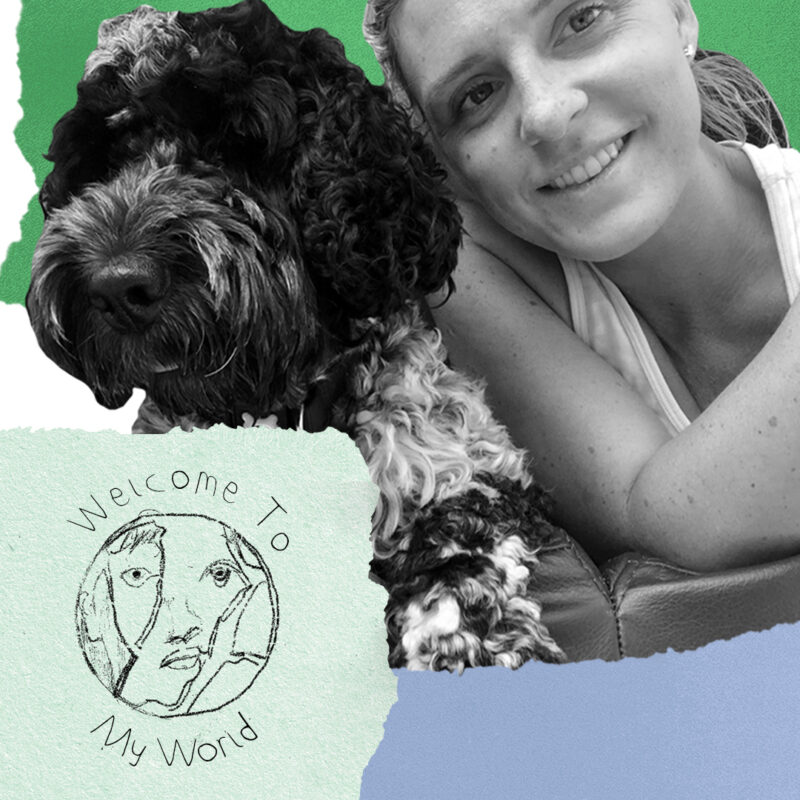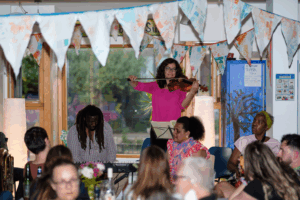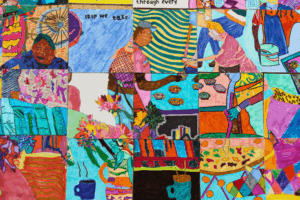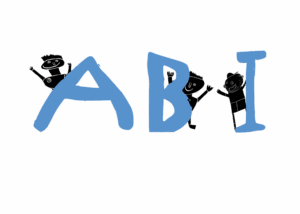I was working full-time as a Marketing Manager in central London. Life was really fast paced and sociable; I was out and about a lot. That was six years ago now.
I was driving home on the motorway when my car was hit by a drunk driver. I don’t remember much from that time, but I remember the visuals: lights in my mirror. I remember the smell of my car. I was asked if I wanted to go to hospital but I said no, I think it was the shock.
I turned up on my mum’s doorstep the next morning but I don’t know how I got there. I text her on the way saying I’d been in an accident and she must have gotten it as I approached the door. All I remember was her purple dressing down.
Going to hospital that first time, I can just remember holding the sick bowl, those horrible cardboard ones. I was meant to have a CT scan, but then I was being sick and we waited a really long time, so in the end we just went home with a leaflet on head injuries.
When I first went back into the office it was awful. I couldn’t get in on time, I was getting really bad migraines and I was having to rest throughout the day. I also started to notice things – my job included a lot of writing but I just couldn’t manage it anymore, I really struggled. My spelling had changed too, and I couldn’t focus. You know how you normally just have one thing open? Well I’d have 10 open and just keep flicking between each one without doing anything.
I had changed, but back then I just didn’t want people to know so I was trying to put on this pretence. I was struggling to remember words and names, and I kept getting these really bad headaches. They were actually migraines but I didn’t understand what they were. At one point I got lost trying to go to my mum’s house, and I was standing in the street, in the place I grew up in, with no idea where I was.
Things were just getting worse and worse, but I didn’t understand what was happening to me. I’d joke that I was getting more “blonde” and when I’d go to the doctor they’d just say it was stress or PTSD, so it was making me feel like I was going crazy. I basically had a breakdown and was quite unwell for a while because of it all. It’s been a real battle trying to get any help.
When I eventually saw a neurologist, and I went through everything with him he said that’s a traumatic brain injury. There was this real sense of relief in a way; finally I’ve got a diagnosis.
If you break your arm people can see it, but it’s harder when people can’t see. Even with family, and especially with friends. At the start I just didn’t tell anybody, but then my behaviour changed and I kept cancelling and not turning up to things. I’ve lost friends because of this. They’d say things like “I saw her yesterday and she looked fine”. I really struggle with my fatigue, but I’m not the type of person to be that open and explain it. Just having one busy day can have an effect for days.
Because I had to stop working; you lose your identity. I remember at Christmas one family member said “oh you’re still not working?!” and my mum had to pull them aside to explain what I was going through, and they said “oh but she looks fine?”. For two years I tried temp work and online courses, but nothing would work. I hadn’t figured out how to recognise and manage my symptoms, and in the end my parents said you have to just focus on getting better. That’s when I started talking to Headway, who helped to fill that gap in understanding.
I think I was first introduced to you through the speech therapy services at the hospital. Your details kept popping up so I made a self-referral and have been seeing the team for about a year. I’ve had a block of sessions with the Occupational Therapist and Psychotherapist. When I first starting speaking with you and talked through my symptoms I remember the therapist saying “oh that can be common”. It’s obviously not a nice thing to have happened, but it’s nice to hear you’re not alone.
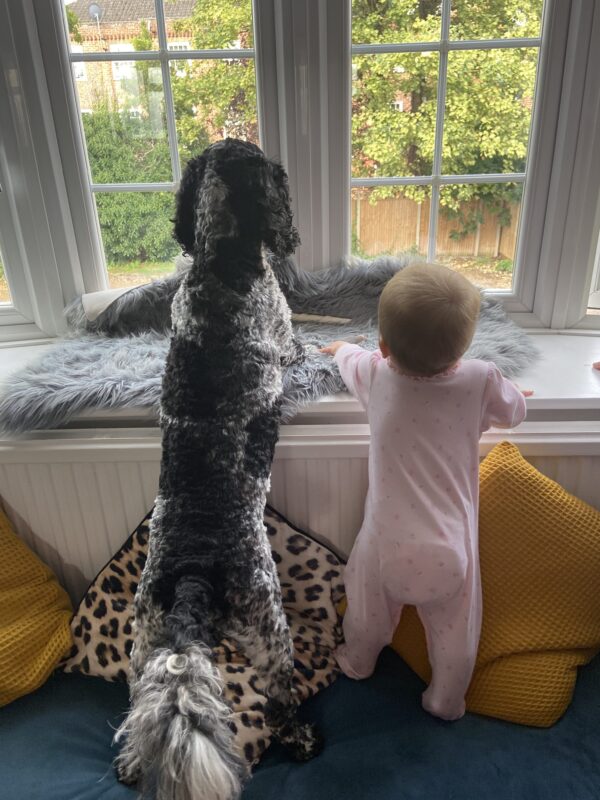
We did a memory test and looked at strategies to help with that. I mainly make notes on my phone, so I make a list of all the things I need to do, and use alarms too, that’s really helpful. I also have a whiteboard, so I can write straight away when things come into my head and then it’s there so I can see it.
Everything’s so fast paced these days. I fell pregnant in 2019 and that was very exciting but very nerve-wracking. I wondered how I’d be able to cope with being a mum too, but it’s been amazing. I feel like I’m getting more of a grip on recognising the signs of my injury. I now know the difference between tiredness and fatigue – especially as a new mum. So when I feel the fatigue coming, I now have a nap or meditation. Having a nap used to feel like the worst thing in the world – it didn’t feel a normal thing to do. But now I’m starting to become the new normal of me. I wouldn’t say I’ve perfected life with a brain injury, I always used to compare the old me to the new me, but now I’ve realised that I can’t be a good mum if I do too many things and knacker myself out.
Lockdown’s been such a strange time. Isolating is lonely, but then so is the trauma of brain injury. It’s actually been a good time to slow down and really start to recover.
When life is normal and you’re just at home, you feel so much guilt about it. You feel like you should be out doing lots of things, so in a way it has taken the pressure off. You don’t have to keep up that pretence; you can have a bad day and not feel different from anyone else because you’re all going through it. Personally, being at home has helped me to understand the signs and symptoms of my injury more easily. Usually there’s so much going on, but now I have time to think and accept.
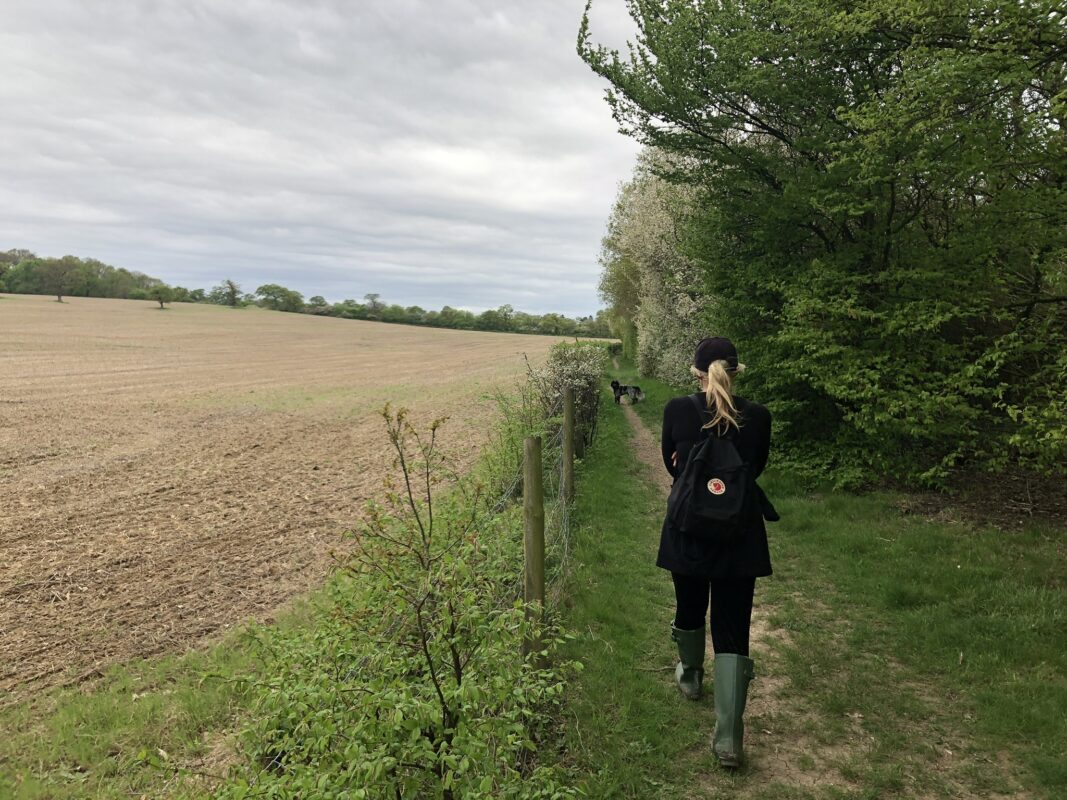
During this time, I’ve also learnt to just take things day-by-day. That’s so important and such a stress reliever. As I have a young daughter now it’s really important that things around my brain injury become normalised for her. I used to try and hide needing to rest, but now I want her to know that I’m going for a nap to nourish myself and look after her better.
When something like this happens, you’re constantly trying to figure things out, but you can’t always do that. Sometimes it’s just about finding strategies for helping you now.
Natasha kindly told her story as part of Headway’s member-led campaign “Welcome To My World” for ABI Week 2020.

